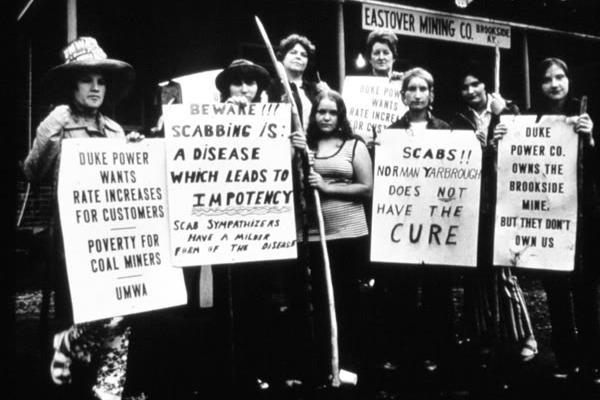
If like is what happens while you are making other plans, great documentaries are often those that result from sudden and unexpected navigational shifts. Nowhere is that more evident than in the films of Barbara Kopple. A profile of the Dixie Chicks takes on new scope after Natalie Maines makes a comment about George W. Bush. A profile of Mariel Hemmingway becomes a powerful examination of suicide prevention and mental health. And, of course, a film about union elections turned into a ground-level recording of history when UMWA workers go on strike.
I used to think Kopple was just lucky in a journalistic sense that things happened when she was around. Later, as I listened to hear talk about the production process, I understood that those who are looking directly at people and events others too often look past tend to see them more clearly. A documentary can be spiritually significant not just because of what it objectively shows us about its subject but also because of how it models for us empathy and understanding. Kopple worked on Harlan County for four years, earning the trust of the strikers who were by no means quick to embrace outsiders. She showed us not only the plight of the working poor but what it takes to win their respect — treating “the least of these” as worthy of the same attention as the rich and powerful movers and shakers of the world. — Kenneth R. Morefield (2023)
Arts & Faith Lists:
2023 Top 25 Spiritually Significant Documentaries — #24